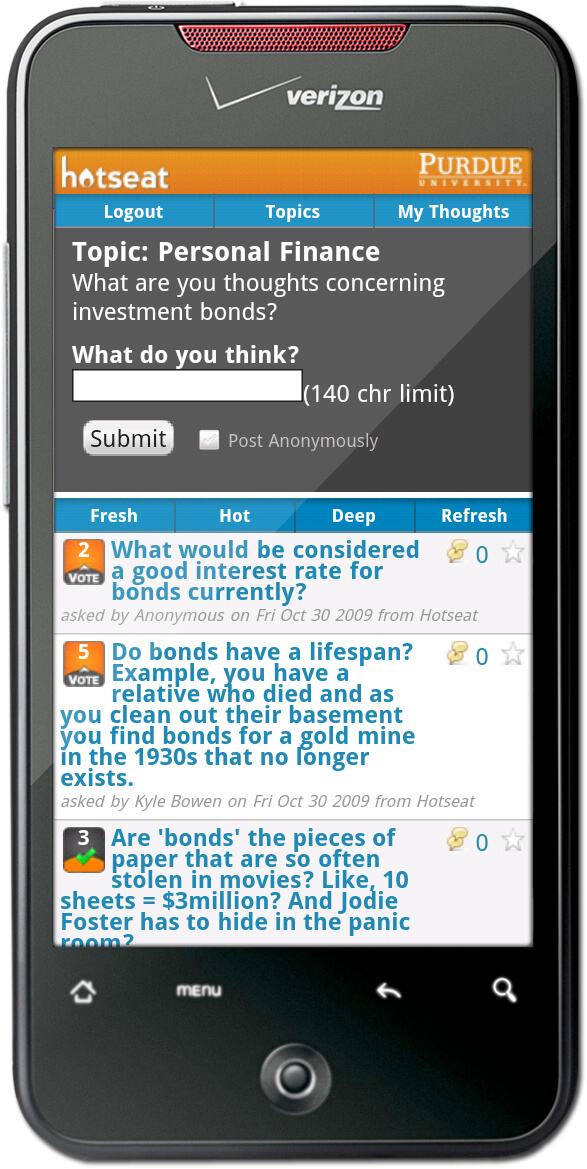SCIENCE
Twitter app in the classroom increases involvement, research finds - Page 2
Article Index
"It can give professors real-time feedback during a lecture, or they can use it to answer common questions after class," Bowen says. "Either way, the professors we've talked to say knowing what questions the students have has been very valuable."

An app for smartphones allows students to join in classroom discussions at Purdue via Twitter, Facebook or by sending text messages. The app, called "Hotseat," is most often used by high-performing students, according to newly released results of the pilot test study. (Purdue University image)
Unlike a regular Twitter account, the Hotseat discussions are restricted to just students enrolled in the class and the instructors leading the course. Students may post anonymously - 53 percent of the students in the pilot study chose this option - but who is actually posting is known to the instructor.
"This prevents 'content grenades,' where a student intentionally tries to get the discussion off course," Bowen says.
Instructors also receive analytic data about how much students are posting and when.
The research found that in two of the three classes the students sending messages the most were those receiving As, the students sending the second-most number of messages received Bs and so on, with students receiving the lowest grades sending the fewest messages. In the other course examined, students who received Bs sent the most messages.
"Hotseat use tracks with the level of student engagement, and our survey found that it increases student engagement in the classes," Bowen said.
Hotseat segregates messages into those that are the most recent, which are labeled "fresh"; the most popular, which are labeled "hot"; and those that are the most discussed, labeled "deep."
The interaction changes the experience of a large lecture class, says Hans Aagard, senior educational technologist at Purdue.
"Hotseat gives students in large lectures an active role in the class instead of sitting and listening passively," Aagard said. "We know that active learning is an important component to student success in these settings."
During the pilot study, students could only respond to Hotseat by sending Twitter or Facebook messages, or by logging into the Hotseat website. For this academic year, students can also send text messages to Hotseat.
Purdue has made Hotseat available to other institutions via the educational software site FolioDirect.net.
